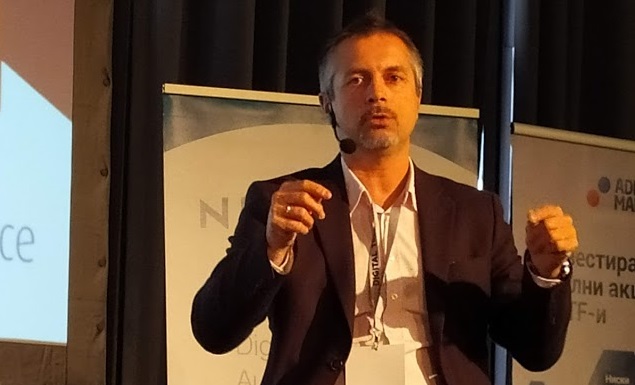
"One of the biggest problems of e-commerce and online marketing development is populism – the underestimation of important things and the information overload. We've all heard about 5G, but there is nothing more in it than the usual Wi-Fi available on our phones today," - said Neven Dilkov, Neterra's founder and manager, at the E-Commerce Scalability panel discussion at Digital Trends conference at the National Palace of Culture.
He explained that by trying to produce more vocal news about technology developments, we underestimate the complexity of the tasks that have to be addressed. The founder of Neterra gave the following example: "The Internet was invented 30 years ago and everyone thinks that it should work properly, but this does not happen by itself. With the increase of responsible applications that we put on it and on the entire infrastructure of servers, cables, routers, switches, firewalls, DDoS protection and more, it does not become easier to manage, but more complicated. In this sense, today's business is not ready in a reliable way to achieve ambitious future goals."
Neven Dilkov advised the audience, despite the misleading information, not to refuse to look for the truth. He described how Neterra helps its customers (including many online stores) to prevent possible problems: “Our company has been using so-called ‘Diagnose challenges with status charts’ for years. A qualified Neterra engineer meets with the client and describes absolutely all possible conditions of his complex system. This determines what actions the on-duty engineer takes to allow the system to go from one state to another. When such measures are taken in a timely manner, debugging and solving problems in complex systems ceases to be black magic." He advised online business owners to seek solutions to complex problems with the help of people and businesses they trust.
The second problem in the modern technological world that Neven Dilkov outlined during the discussion is that it is no longer possible for people to understand what the software they have created, such as mobile phones, does. Provided that the major software companies explicitly warn us that they are not responsible for the product will work, and we want to rely on self-driving cars, AI and other revolutionary innovations, we need "control software for the software", says Neven Dilkov.
According to him, the solution is to create control software that we can understand and manage. It will, in turn, control a series of other software. So, we would have a great deal of certainty that artificial intelligence will do what we want and expect it to do.


